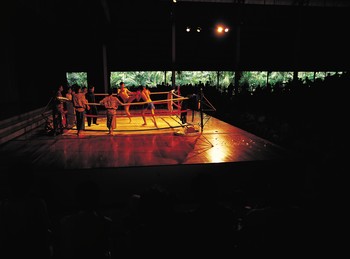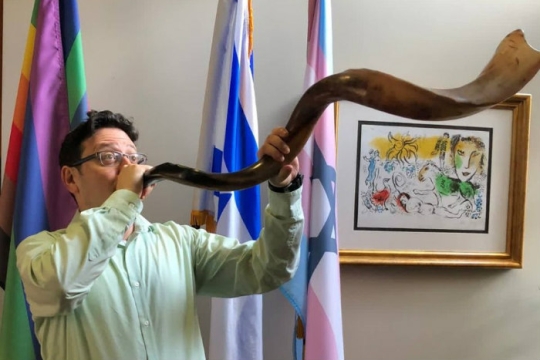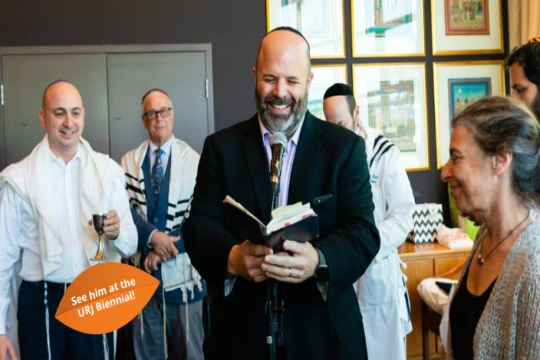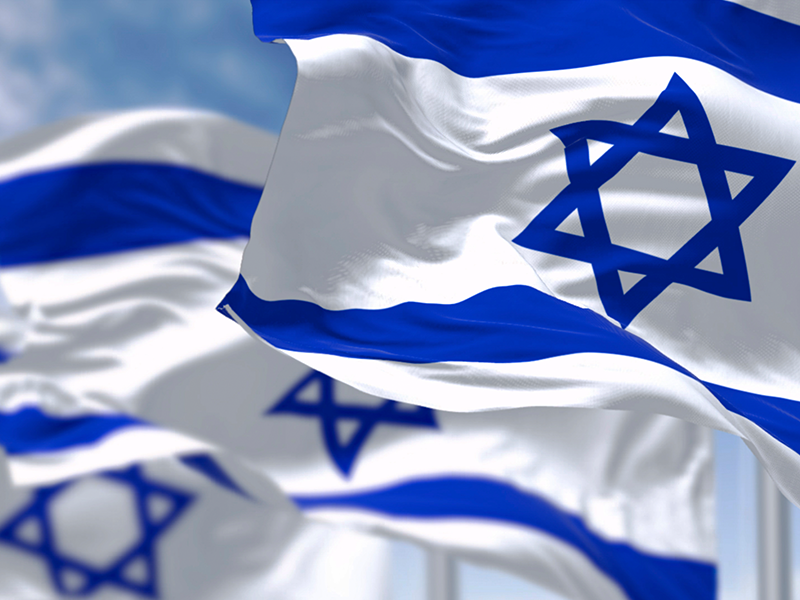D’var Torah: Vayishlach: A Wrestling Match for the Ages

“In this corner, returning after a long absence in Haran, where he is rumored to have fathered eleven sons and one daughter with four different women, considered by some a saint and by others a heel, is the one, the only, Jacob, son of Isaac and Rebekah.
“And in the other corner, the most mysterious being ever to set foot in a wrestling ring: Is he a man? An angel? God? Nobody knows.”
That is how the unusual encounter that highlights the beginning of this week’s Torah portion might be described if it were to take place today (before a live, pay-per-view audience, of course). If there was ever a match for the ages, an encounter that transformed not only each participant, but also an entire people, it was the experience that Jacob had when he was left alone after crossing a ford of the Jabbok River. Jacob would not be the same, his opponent would not be the same, and we, the Jewish people, would not be the same.
And yet, for all its profound significance, it is a story characterized by ambiguity and confusion. The text first says that “a man” wrestled with Jacob until dawn (Genesis 32:25), but it quickly becomes clear that it is no ordinary human being. When Jacob asks his name, he becomes indignant: “Why do you ask my name?” he says before leaving. Jacob then names the place Peni’el—“for I have seen God face-to-face, yet my life has been spared” (32:31).
Compounding the confusion surrounding Jacob’s opponent, is the fact that the text uses so many pronouns—he/him—that the reader is not always sure who is who: “Now Jacob was left alone, and a man wrestled with him until the rise of dawn. When [he] saw that he could not overcome him, he struck his hip-socket, so that Jacob’s hip-socket was wrenched as [he] wrestled with him. Then he said, ‘Let me go; dawn is breaking!’ But [he] said, ‘I will not let you go unless you bless me!’ The other said to him, ‘What is your name?’ and he said: ‘Jacob.’ [He said,] ‘No more shall you be called Jacob, but Israel, for you have struggled with God and with human beings, and you have prevailed’” (32:25–29).
It is virtually impossible to read through the text and not become confused between the uses of “he” and “him.” Only a couple of strategically placed “Jacobs” allow us to figure out who could not overcome whom and who blesses whom. I cannot help but believe that the author was purposely ambiguous so that the reader would not always be certain who was who, just as sometimes when watching a competitive wrestling match it is not always clear who is on top and has control.
The Rabbis, of course, suggest a variety of identities for the “man” with whom Jacob wrestled: –the prince [that is, guardian angel] of Esau (B’reishit Rabbah 77:3) –an angel in the guise of a shepherd (Tanchuma to Genesis 32:25) –a righteous person’s inner struggles against the face of evil (Bereshis/Genesis: A New Translation with a Commentary Anthologized from Talmudic, Midrashic and Rabbinic Sources[Brooklyn: Mesorah Publications, Ltd., 1979], p. 1,437)
Why all this confusion about Jacob’s opponent? Why the ambiguity about who was doing what to whom?
Bill Moyers, in Genesis: A Living Conversation, observes, “I often don’t know whether I’m struggling with God or with myself. And if I’m struggling with myself, I’m struggling with both the demonic and divine in me” (New York: Doubleday, 1996, p. 299).
The confusion and ambiguity in this story accurately reflects the confusion and ambiguity that we often face in our struggles. We often think we know who our opponent is, only to find out later that we were mistaken. We sometimes think that we are struggling against someone else, when we are really struggling with ourselves.
The story of the Creation teaches that each human being is created in the Divine Image. Therefore, when we fight with another person we are fighting with God. We cannot separate our encounters with our fellow human beings from our encounters with God. They are one and the same.
We know that Jacob was profoundly changed by his wrestling match. He was physically damaged, “limping on account of his thigh” (Genesis 32:32). But he also was spiritually renewed, as reflected in his new name: Israel. He was no longer the “heel” who tricked and deceived others; he was now upright (based on those who see his name related to the Hebrew root, yod-shin-reish). A man who was never known for his physical prowess needed another reminder that it is not his physical strength, but his spiritual strength that counts. A person who was never willing to struggle with his brother, who runs away when he is threatened by him, now learns that it is through struggle that one grows and becomes the person that one is meant to be.
But Jacob was not the only one who was changed by this wrestling match. His opponent, whom Jacob ultimately realizes is God, was also changed. From now on God knows that there is a true covenant-partner; first an individual—then a nation—who will argue and fight back; who will challenge and not allow God to escape from our grasp without answering our most challenging questions. Perhaps this was the moment when God first knew that Jacob and his descendants are indeed worthy of the gift of the covenant because they understand that being part of the covenant means standing up for who you are and what you believe in, no matter who you are standing up to.
Finally, this wrestling match also changed who we would be as a people. It not only gave us our name, Israel, but it gave us our identity. It means that we are destined to wrestle and struggle and fight not only with our enemies, but also with ourselves and with God. It established the idea that through such struggle comes growth and reconciliation, and that only through direct confrontation are we able to change from who we are to who we were meant to be.
Related Posts

Awakening to the Moral Imperatives of this Moment

Navigating COVID: Our Ancestors Pointed the Way

